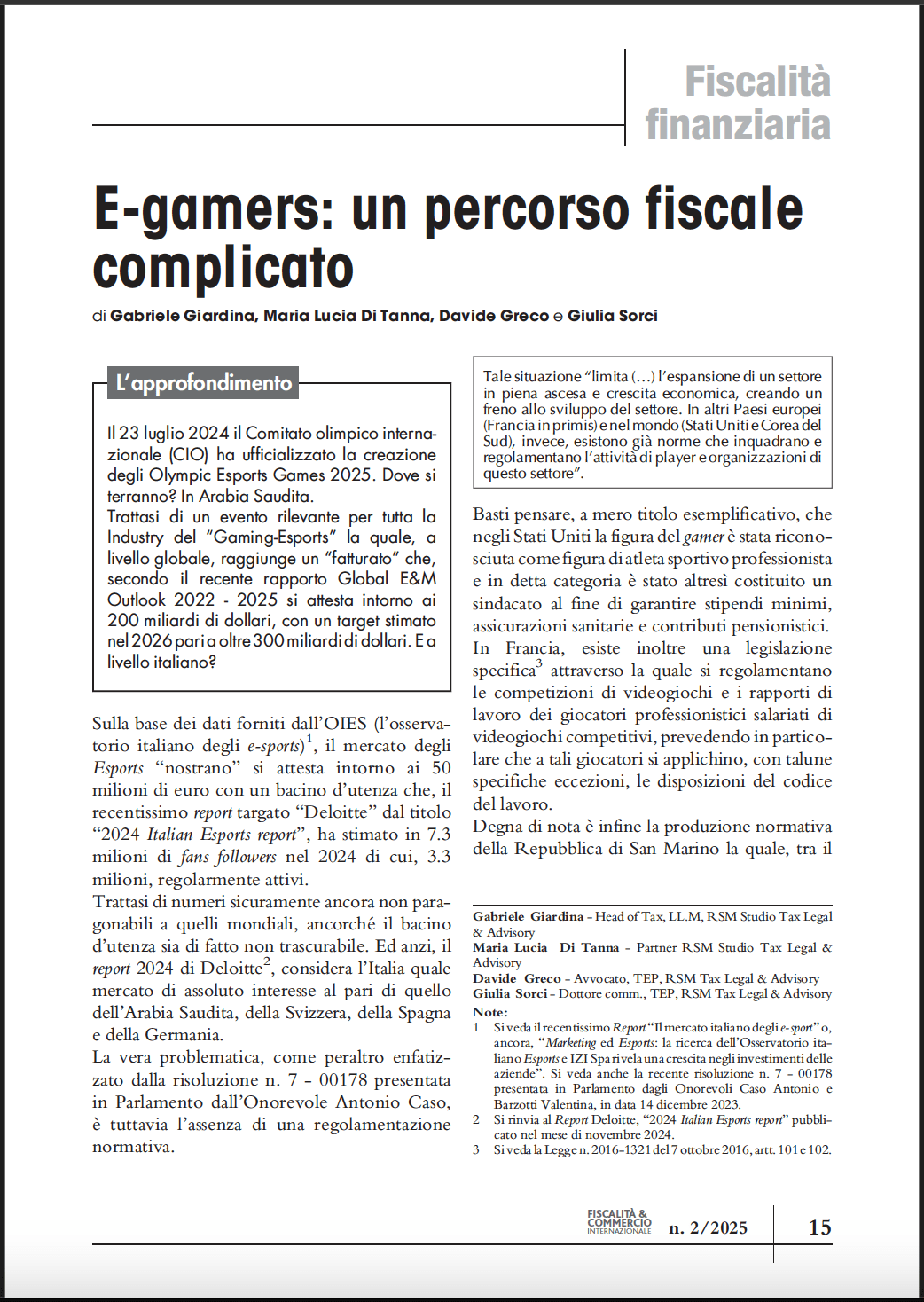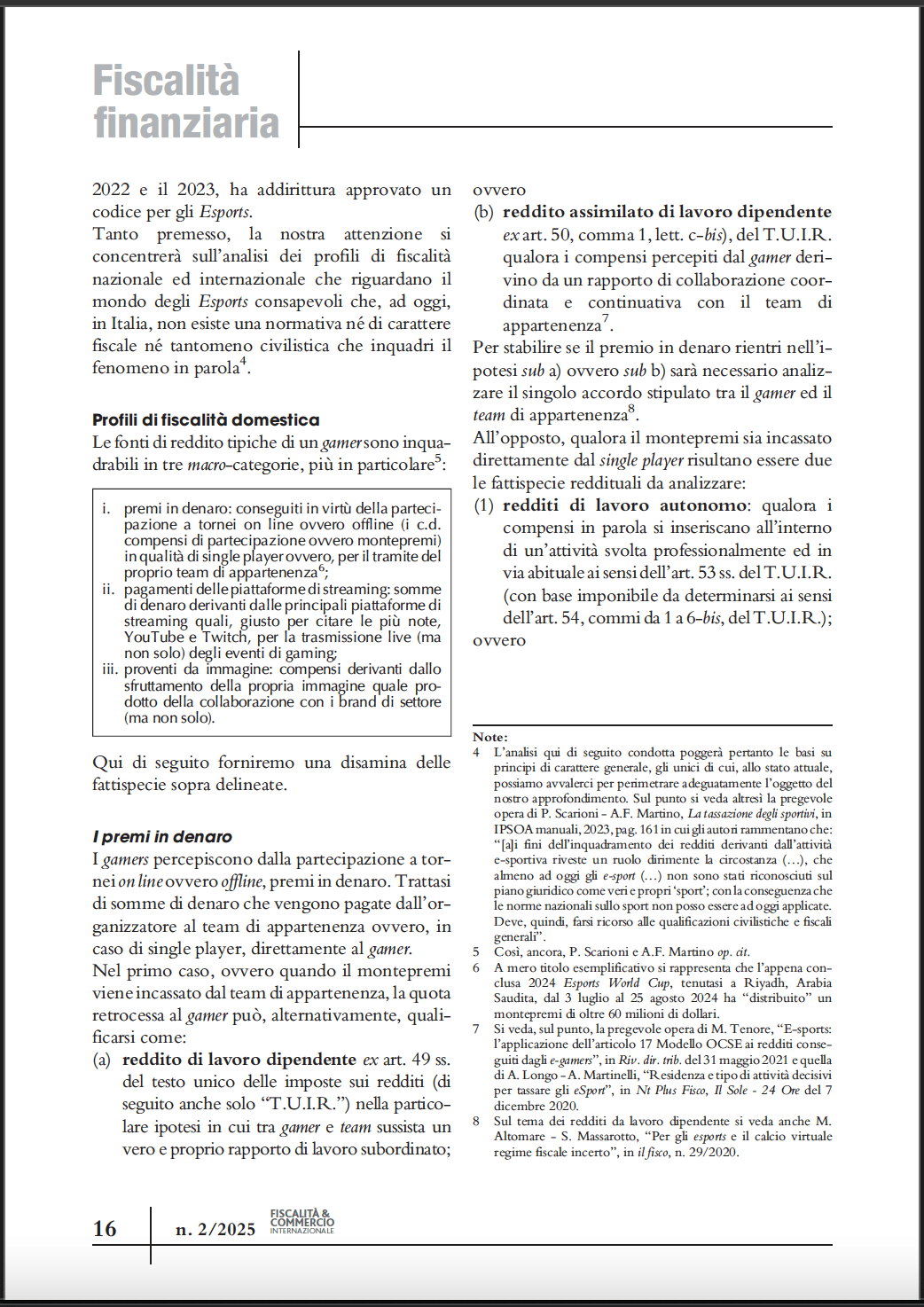In issue no. 2/2025 of the journal Fiscalità & Commercio Internazionale, published by Wolters Kluwer Italia, Gabriele Giardina, Maria Lucia Di Tanna, Giulia Sorci, and Davide Greco address a particularly fascinating topic: the taxation of the eSports industry.
The analysis is developed on two levels.
In the first part, the authors focus on domestic tax profiles, outlining the main sources of income for gamers from a tax perspective.
A gamer’s typical income sources can be categorized into three main areas:
i. prize money: earnings from participating in online or offline tournaments (so-called participation fees or prize pools), either as single players or through their respective teams;
ii. payments from streaming platforms: income derived from major streaming platforms such as YouTube and Twitch (among others), particularly for live gaming events but not limited to them;
iii. image-related revenues: Compensation from the use of their image, often tied to collaborations with industry brands (and beyond).
In the second part, the authors explore international tax profiles, focusing on the provisions of Article 17 of the OECD Model Convention.
In particular, the key question addressed is: on an international level, is a gamer considered an artist or an athlete?
According to international doctrine, a gamer should be classified within the athlete category for several reasons, summarized below.
Firstly, the physical “effort” that competitive gaming imposes on the individual gamer. Like traditional sports, eSports require gamers to undergo specific training and preparation. It is estimated that a competitive gamer can perform over 400 clicks per minute on a keyboard and mouse. Furthermore, during a gaming performance, a gamer’s heart rate can reach between 160 and 180 beats per minute, a range typically seen during a sprint. It has even been calculated that during a “battle,” the stress levels are so high that the amount of cortisol produced by the gamer is nearly equivalent to that of a competitive race driver.
These remarkable figures highlight that competitive gaming demands a physical effort from gamers that, in certain respects, is comparable to that of athletes in traditional sports.
However, it is not just physical effort that is emphasized by international doctrine. Attention is also given to:
1. the psychological and mental aspects; and
2. the structural similarities between eSports events and traditional sporting events.
For the full article, please refer to issue no. 2/2025 of the journal Fiscalità & Commercio Internazionale, published by Wolters Kluwer Italia







